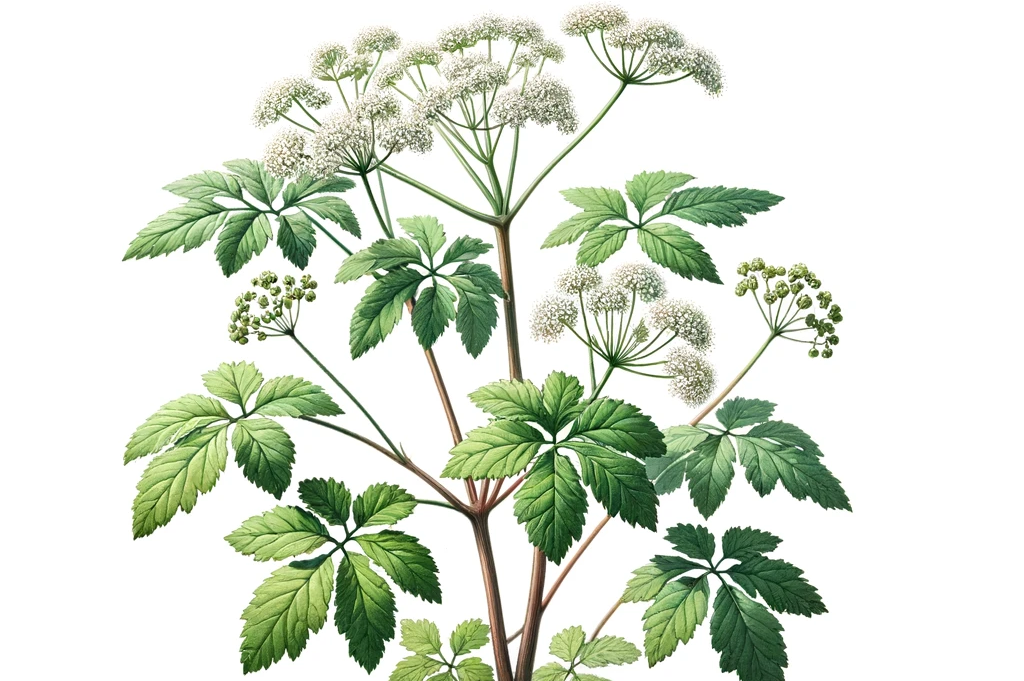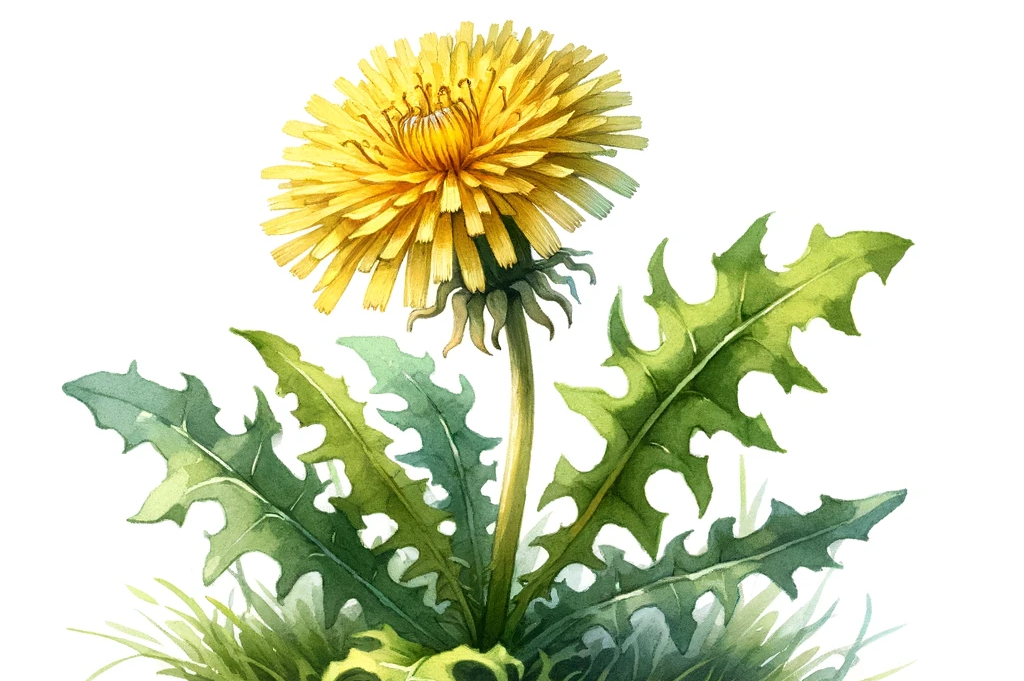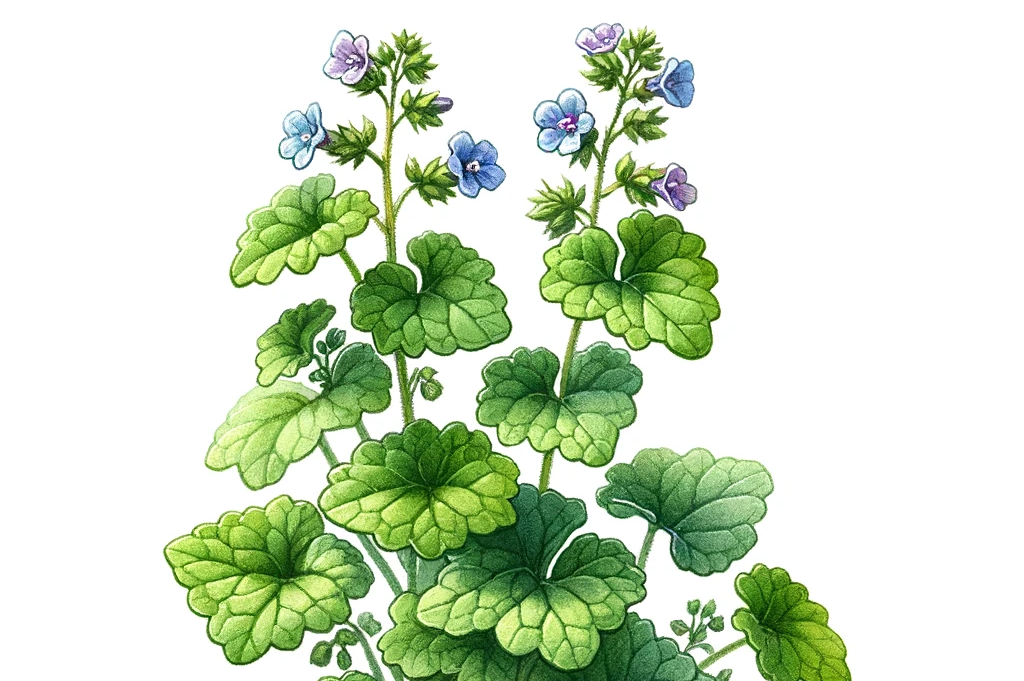Common chickweed

What is common chickweed?
Chickweed belongs to the clove family (Caryophyllaceae) and is usually an annual plant. It is also known as chickweed, hen's gut, cough gut or hen's bit. Chickweed is a very adaptable plant that can be found in temperate climate zones worldwide. It can grow up to 40 cm long and forms prostrate shoots that branch out strongly and take root at the soil contact points. The flowers are white and have five deeply split petals that look like ten petals. The leaves are oval to lanceolate and sit opposite each other on the stem.
Chickweed is a very nutritious plant that contains many vitamins (A, B, C), minerals (calcium, magnesium, iron), trace elements (zinc, copper, manganese) and secondary plant substances (flavonoids, saponins). It has a mild taste and can be eaten raw or cooked. Chickweed has been valued in traditional herbalism since time immemorial and has various medicinal properties.
What are the benefits of chickweed for your dog?
Chickweed can serve as a valuable wild vegetable ingredient for a varied dog meal. It provides your dog with important nutrients that can strengthen his immune system and promote his health. Chickweed has the following benefits for your dog:
- It has an anti-inflammatory effect and soothes skin irritations, eczema or wounds.
- It has an expectorant effect and helps with coughs, bronchitis or asthma.
- It has a diuretic effect and supports kidney function.
- It has a blood-purifying and detoxifying effect.
- It stimulates the appetite and aids digestion.
- It has a calming and relaxing effect in cases of stress or nervousness.
What are the disadvantages of chickweed for your dog?
Chickweed is generally well tolerated by your dog and has no known side effects or interactions with other medications or herbs. However, there are a few things you should consider before feeding it to your dog:
- Chickweed can cause allergic reactions if your dog is sensitive to it. Therefore, watch out for possible symptoms such as itching, skin rash or breathing difficulties and stop feeding if you notice them.
- Chickweed can affect blood clotting if your dog is on blood-thinning medication or herbs such as garlic or willow bark. Therefore, consult your vet before feeding it to your dog if he is taking such medication.
- Chickweed can lower blood sugar levels if your dog has diabetes or is insulin-dependent. Therefore, monitor his blood sugar levels and adjust the insulin dose when you feed it to your dog.
- Chickweed can weaken the effect of thyroid hormones if your dog has hypothyroidism or is on thyroid medication. Therefore, discuss with your vet whether you can feed it to your dog and how you need to adjust the hormone dose.
How do you feed chickweed to your dog?
You can give chickweed to your dog fresh or dried as an addition to its food. You can also prepare it as a tea and offer it as drinking water. Chickweed should only be fed in small quantities as it is very rich in nutrients and an overdose can lead to digestive problems. As a rule of thumb: one teaspoon of fresh or dried chickweed per 10 kg of your dog's body weight per day.
You can collect chickweed in the wild or grow it in your garden. Make sure that you only use unsprayed and uncontaminated plants and that you wash them thoroughly before giving them to your dog. You can also buy chickweed in health food stores or online stores.
Chickweed is a healthy ingredient for your dog that offers him many nutrients and healing effects. It can have anti-inflammatory, expectorant, diuretic, blood-purifying, appetite-stimulating and calming effects. However, you should take a few precautions if your dog is allergic, blood-thinning, diabetic or has a thyroid condition. Chickweed should only be fed in small quantities and should only be obtained from unsprayed and uncontaminated sources. If you pay attention to these points, you can offer your dog a tasty and healthy change with chickweed.
If you notice any signs of hypersensitivity or poisoning in your dog, you should see your vet immediately. We are not a substitute for a vet, but we try to be as accurate as possible. Every dog reacts differently and we recommend you get a second opinion or consult your vet if in doubt.
Stay healthy and take good care of your four-legged friend!😊
Similar to Common chickweed
Goutweed, also known as goat's foot or ground elder, is a perennial plant from the umbellifer family (Apiaceae). It is native to Europe and Asia and has spread to many parts of the world. Goutweed...
Dandelion is a perennial herbaceous plant from the composite family. It has a long taproot that reaches up to one meter deep into the ground. All parts of the plant contain a white, milky sap that...
Stinging nettles are herbaceous plants from the nettle family. They grow in Europe, Asia and North America and prefer moist, nutrient-rich locations. The best-known species are the common nettle...
Ground ivy (Glechoma hederacea) is a perennial, ground-covering plant that has been used in traditional medicine for centuries. With its heart-shaped leaves and delicate purple flowers that appear...



